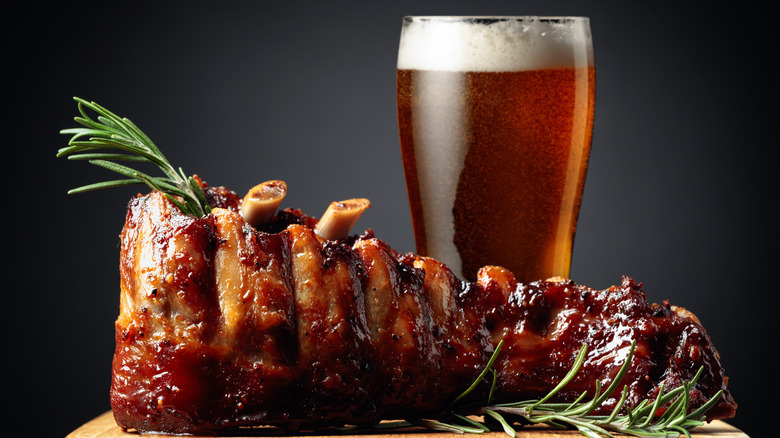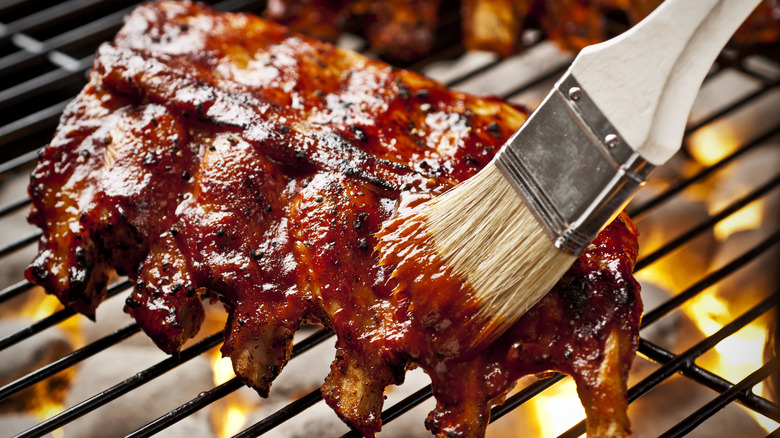The Best Beers To Pair With Brisket And Ribs At A Barbecue
There are still plenty of days left in the year for outdoor barbecues. While you may be tired of hot dogs and hamburgers by now, slow-cooked, heartier meats like brisket and ribs are perfect as we transition into sweater weather. Food Republic spoke with Jessie Massie, Executive Chef at the Sierra Nevada Taproom in Mills River, North Carolina, to ask which beers pair best with this carnivore's feast.
According to Massie, we have several options. Fatty meats like brisket, beef ribs, and sausages pair well with beers as "big and bold" as the protein. Massie recommends an Extra IPA or Double IPA, which complement the meat's rich flavors.
If you prefer something lighter, Massie suggests going in the other direction and choosing a beer with citrus notes to cut through the fatty meat. She recommends drinking lager or citrus wheat beer with this menu to cleanse the palate and balance the meal, rather than competing with it.
Depending on the rub or barbecue sauce used to prepare the meat, you may prefer one beer style over another. When pressed to pick which she prefers, Massie says to "try both — why not? — and see what feels right for that particular meal." We think that's a great idea.
How to incorporate beer into your barbecue
A beer bottle is more than just a tasty accessory; it can also serve as a flavor enhancer. Rich, dark beers like barrel-aged stouts complement the sweet and sticky flavors of homemade barbecue sauce, adding hints of chocolate or coffee. Using a dark beer such as Guinness in your homemade barbecue sauce allows the beer's bitterness to cut deliciously through fatty meat.
To make a beer-infused barbecue sauce, sauté aromatics like diced onion and garlic in vegetable oil over medium heat in a heavy-duty saucepan. Once they soften, deglaze the pan with your favorite beer. Keep in mind that reducing the beer will intensify its flavors, so choose a brew you enjoy drinking.
As the liquid hits the hot pan, use a wooden spoon to scrape up the caramelized bits, or fond, that are stuck to the bottom. Continue cooking the mixture until it reduces in volume. Then, add Dijon mustard, apple cider vinegar, brown sugar, tomato paste, Worcestershire sauce, and ketchup. Bring the mixture to a boil.
Lower the heat and simmer for approximately 30 minutes, or until the sauce thickens. If you prefer, you can purée the barbecue sauce for a silky consistency before using it as a glaze. Store any leftover sauce in the refrigerator for up to two weeks or freeze it for a longer period. Just remember to bring the sauce to room temperature before placing it in an airtight container.


